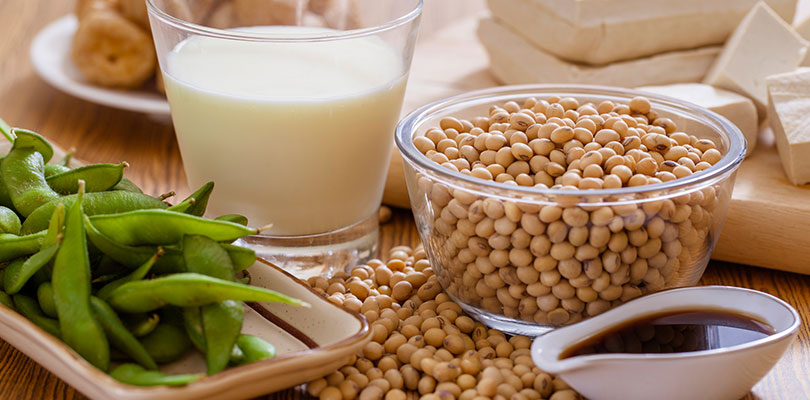
Photo Credit: naito8 / istockphoto.com
Foods and Additives
You are what you eat, so you want to make sure you’re eating healthful foods, not toxic ones. Food additives have never been favorites of health experts, and even some “real” foods have come under fire in recent years.
As it turns out, some might be hazardous to your health, while others are less so.
MSG
Monosodium glutamate is one chemical that has been vilified for years, for all sorts of reasons. As a flavor enhancer, it can be found in all kinds of savory products, from sauces and condiments to pre-packaged dinners and — perhaps most famously — Chinese food.
Almost since the day it was introduced, there have been serious suspicions about the health hazards of MSG. These days, cancer is the leading worry.
While some people maintain that MSG is a direct contributor to cancer, no reputable studies have shown a link. MSG has been deemed safe for consumption by three major bodies of medical expertise and regulation: the American Medical Association, the National Academy of Sciences, and the FDA.
Many experts suggest that it’s perhaps the other unhealthy ingredients in processed foods containing MSG that collectively raise your risk of chronic disease.
Aspartame
Many people are concerned about the neurological effects of aspartame, citing headaches, seizures, even nerve damage. There have been some ups and downs regarding the FDA’s relationship to aspartame, too. In the end, it seems like a pretty risky chemical.
Research on aspartame has not supported the scary claims. One recent study published in Critical Reviews in Toxicology took a look at all the research done on aspartame safety, and reported that “The studies provide no evidence to support an association between aspartame and cancer in any tissue.”
Studies on other potential dangers of aspartame are continuing, but so far, there is no link between the chemical and chronic neurological disease in humans. That said, taking in too much of any additive won’t improve your health.
Sugar
Along with fat, sugar is a major problem fueling the obesity epidemic in North America. It’s difficult to argue that huge amounts of empty calories won’t affect your health for the worse, but can it lead to cancer?
Some insist that sugar directly feeds cancer cells, and thus directly contributes to the growth and spread of cancer.
The truth is, sugar doesn’t feed cancer cells more than any other food source. Every cell in your body needs glucose to function and survive, so cutting out carbohydrates is certainly not the answer.
However, refined sugar does impact your insulin levels and your weight, and this can be a problem: insulin resistance can influence cancer cell growth, and research suggests that obesity, diabetes, and related metabolic conditions will increase your risk of certain cancers.
Soy Products
The isoflavones in soy products are estrogen-like compounds, and since estrogen is known to promote the development and growth of breast cancer, there has been a good deal of concern about including soy in the diet.
In fact, studies show that soy might actually reduce your risk of breast cancer: women who took in the most soy isoflavones were up to 30 percent less likely to develop breast cancer.
However, some research suggests that a lot of soy could turn on certain genes that might encourage cancer cell growth in some women. This is not to say that every women who enjoys soy is at risk, but rather that some women with breast cancer may be genetically vulnerable to the compounds in soy.
Breast cancer isn’t the only worry with soy. Some doctors have pointed out that cultures who enjoy high amounts of soy may not have high rates of breast cancer, but they are more prone to thyroid cancer, esophageal cancer, and digestive cancers.
At this point, medical experts agree that soy products are a safe addition to a healthy diet, but stick to traditional forms like edamame and tofu, rather than highly processed “meat-like” substitutes.
Resources
American Cancer Society (Microwaves, Radio Waves, and Other Types of Radiofrequency Radiation)WebMD (Antiperspirants: Should You Sweat it?)Oncology Nutrition (Sugar and Cancer)BreastCancer.org (Eating Soy May Turn on Genes Linked to Cancer Growth)National Cancer Institute (Cannabis and Cannabinoids (PDQ) – Patient Version)Oncology Nutrition (Caffeine and Cancer)This article will explore primary immunodeficiency diseases and cancer. Read on to learn about the connections.







